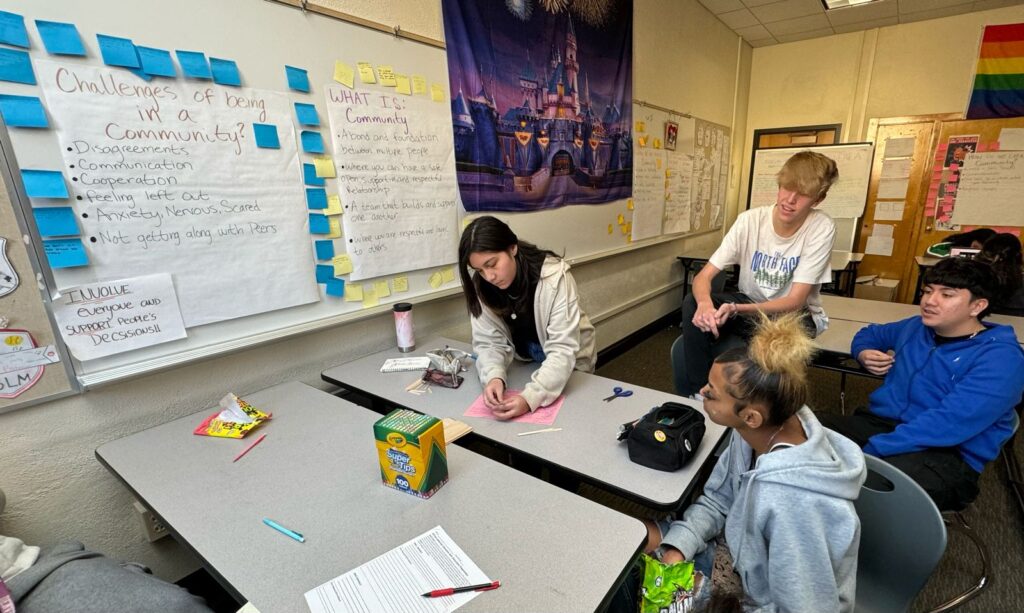Social Emotional Learning Investment
In today's rapidly changing world, investing in youth development is more critical than ever. While academic achievement remains important, there is a growing recognition of the need to cultivate social emotional learning (SEL) skills in young people. These life skills are essential for personal well-being, success in the workforce, and positive contributions to society.
Social Emotional Learning Improves Academic Performance
Research has shown that students who participate in SEL programs demonstrate significant benefits across various domains. For example, a meta-analysis published in the Journal of Applied Developmental Psychology found that SEL programs resulted in improved academic performance, higher graduation rates, and better behavior in schools (Durlak et al., 2011). These outcomes are particularly noteworthy given the strong correlation between educational attainment and future career success.
Social Emotional Learning Improves Attendance & Graduation Rates
SEL plays a crucial role in improving attendance and graduation rates by fostering a positive school climate and supporting students' overall well-being. When students feel emotionally connected and engaged in school, they are more likely to attend regularly and remain motivated to succeed academically. SEL equips students with the necessary skills to manage stress, regulate their emotions, and cope with challenges effectively, reducing barriers to attendance caused by emotional distress or disengagement. Additionally, SEL helps cultivate a sense of belonging and connectedness within the school community, which can mitigate factors contributing to absenteeism, such as social isolation or bullying. By promoting a supportive and inclusive learning environment, SEL initiatives contribute to higher attendance rates and ultimately increase the likelihood of students graduating on time, equipped with the social and emotional competencies needed for future success.
Social Emotional Learning in the Corporate World
In the corporate world, employers are increasingly recognizing the value of social emotional learning skills in the workplace. According to a survey conducted by the World Economic Forum, emotional intelligence, which is a key component of SEL, ranks among the top 10 skills required for success in the Fourth Industrial Revolution (World Economic Forum, 2016). Employees with strong SEL skills are better equipped to collaborate effectively, communicate with empathy, and adapt to changing circumstances – all of which are essential for thriving in today's dynamic work environment.
Skills such as self-awareness, self-management, social awareness, relationship-building, and responsible decision-making are essential components of effective leadership, teamwork, and professional growth. Employees who possess strong SEL skills demonstrate a higher level of emotional intelligence, enabling them to navigate diverse work environments, collaborate effectively with colleagues, resolve conflicts constructively, and adapt to changing circumstances with resilience. Moreover, individuals with well-developed SEL competencies are more adept at communicating clearly, empathizing with others' perspectives, and fostering positive working relationships, which enhances team cohesion and productivity. By prioritizing SEL in the workforce, organizations can cultivate a culture of respect, trust, and collaboration, resulting in happier employees, stronger teams, and greater overall success.
SEL, Promotions, and Higher Salaries
Moreover, research has shown that individuals with higher levels of emotional intelligence are more likely to be promoted to leadership positions and earn higher salaries over time (Cherniss & Goleman, 2001). By investing in social emotional learning programs for youth, corporations are not only preparing the future workforce but also cultivating a talent pool of emotionally intelligent individuals who can drive innovation, foster positive workplace cultures, and ultimately contribute to organizational success.
As corporate leaders, supporting initiatives that promote social emotional learning in youth - like programs offered by YESS Institute - is critical. By partnering with organizations like YESS Institute, which are dedicated to equipping young people with the skills they need to succeed in life and work, we can make a tangible impact on the future of our workforce and society as a whole. Together, let's embrace the ROI of SEL and empower the next generation to embrace their full potential.
🌟 Invest in the Future: Become a Corporate Sponsor for YESS Luncheon Fundraiser! 🌟
Reasons to become a YESS Institute Corporate Sponsor
Transform Lives:
Your sponsorship directly supports our proven SEL programs, empowering thousands of students to thrive academically, socially, and emotionally by equipping them with essential skills for school, careers, and beyond.
Future Workforce Investment:
SEL skills cultivated in our programs translate to a more resilient, adaptable, and productive workforce, enhancing your company's bottom line and employee retention.
Maximize ROI:
Invest your sponsorship dollars where they make the most difference – in programs that have a tangible, measurable impact on student success, academic achievement, and long-term career prospects.
Corporate Social Responsibility:
Showcase your commitment to community impact and youth development by partnering with a local nonprofit dedicated to empowering the next generation. Gain exposure to thousands of community members and leaders through our event promotions.
Local Community Engagement:
Support a longstanding pillar of the Denver community with a track record of excellence in serving youth since 2001. Your sponsorship strengthens our collective efforts to foster equity, diversity, and inclusion in education and beyond.
Ready to Make a Difference? Click here to support our cause or email us at Christina@yessinstitute.org to learn more about corporate visibility benefits and sponsorship opportunities.

References:
- Durlak, J. A., Weissberg, R. P., Dymnicki, A. B., Taylor, R. D., & Schellinger, K. B. (2011). The impact of enhancing students' social and emotional learning: A meta-analysis of school-based universal interventions. Journal of Applied Developmental Psychology, 32(5), 1-21.
- World Economic Forum. (2016). The Future of Jobs: Employment, Skills, and Workforce Strategy for the Fourth Industrial Revolution.
- Cherniss, C., & Goleman, D. (2001). The Emotionally Intelligent Workplace: How to Select For, Measure, and Improve Emotional Intelligence in Individuals, Groups, and Organizations. Jossey-Bass.